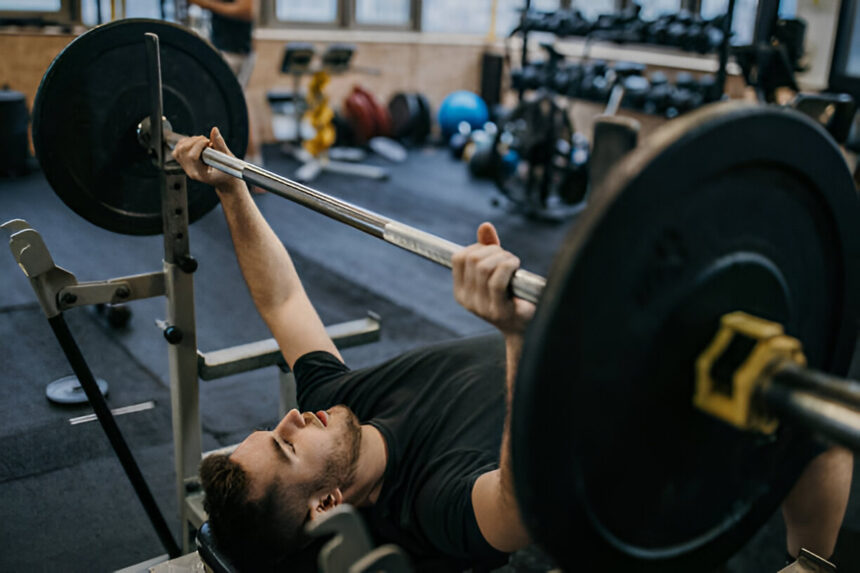In the world of sports, every second counts. Athletes constantly strive to push their limits and enhance their performance. But what separates the good from the great? It’s not merely talent but mastering essential skills that elevate an athlete’s game. Whether you’re an aspiring athlete, a seasoned coach, or a fitness enthusiast, understanding these skills can make all the difference in achieving success.
Athletic Skills Overview
Athletic skills form the backbone of any sport. They’re not just about physical prowess but encompass mental toughness, tactical awareness, and team dynamics. Athletes can improve their performance, increase resilience, and foster better teamwork by honing these skills.
Physical Conditioning
Strength Training
Strength is foundational in sports. Building muscle strength can significantly enhance performance and reduce the risk of injuries. A renowned strength and conditioning coach once said, “Strength training is not just about lifting heavier weights. It’s about enhancing your body’s capacity to withstand the demands of your sport.” Exercises like squats, deadlifts, and bench presses can lay the groundwork for a robust athletic physique.
Endurance and Stamina
Stamina is what keeps athletes going. In sports like soccer and basketball, endurance determines how long you can perform at peak levels. Techniques such as interval training and long-distance running help boost stamina. By increasing endurance, athletes ensure they don’t tire quickly, gaining a competitive edge over opponents.
Speed and Agility
Sprinting Techniques
Speed is crucial across many sports, from track events to team games. The ability to sprint efficiently can make or break a performance. Renowned speed coach John Smith emphasizes, “Improving sprinting techniques requires focusing on both form and power. It’s about maximizing each stride.” Drills like high knees and resistance sprints can refine an athlete’s speed.
Agility Drills
Agility is about quick movements and split-second decisions. It allows basketball players to dodge opponents or soccer players to change direction swiftly. Incorporating ladder drills, cone drills, and shuttle runs can significantly enhance an athlete’s agility, making them more adept in high-pressure situations.
Flexibility and Mobility
Importance of Flexibility
Flexibility is often overlooked but is crucial in preventing injuries and improving performance. Stretching exercises like hamstring stretches and calf raises keep muscles limber and ready for action. An experienced coach advises, “Flexibility ensures your body can handle the stresses of your sport without breaking down.”
Mobility Exercises
Mobility complements flexibility by enhancing functional movements. Exercises like hip circles or shoulder rotations can improve joint mobility, allowing athletes to perform movements with ease and efficiency.
Mental Toughness
Focus and Concentration
In high-pressure sports scenarios, mental focus can decide between winning and losing. Techniques such as visualization and mindfulness can sharpen an athlete’s concentration. Sports psychologist Dr. Jane Doe asserts, “Mental focus is about training the mind to remain present, especially when the stakes are high.”
Resilience and Handling Pressure
Resilience is the ability to bounce back from setbacks. Building mental resilience involves developing a positive mindset and learning from failures. Even under pressure, athletes who stay calm and composed often find themselves on the winning side.
Tactical Awareness
Game Understanding
Understanding game strategy is pivotal. Analyzing opponents and anticipating their moves can provide a competitive advantage. Watching game footage and discussing strategy with coaches can enhance an athlete’s game awareness.
Decision-Making Skills
Quick decision-making is crucial in fast-paced sports. Developing this skill involves drills that simulate game scenarios, prompting athletes to decide on the fly.
Communication Skills
Verbal Communication
Clear communication with teammates and coaches is crucial for successful team dynamics. When team members express their thoughts and strategies effectively, it leads to better collaboration and fewer misunderstandings. Practising open communication builds trust and understanding within teams, fostering a more cohesive and efficient work environment. This can enhance performance as players feel more connected and aligned with their goals.
Non-Verbal Communication
Non-verbal cues, like body language, significantly impact sports and team dynamics. Gestures, facial expressions, posture, and eye contact convey information without words. Interpreting these cues enhances team coordination and performance, as players better understand each other’s intentions and emotions. Mastering both verbal and non-verbal communication helps teams achieve greater synergy and success.
Adaptability and Versatility
Adjusting to Different Roles
Versatility allows athletes to adapt to different roles within a team, boosting their contribution in various scenarios. Training for multiple positions broadens their skill set, ensuring they remain valuable team members. This adaptability benefits team dynamics and offers more chances for athletes to excel, stepping in effectively when needed. Coaches and teammates value such flexibility, making versatile athletes essential to any team.
Coping with Changing Conditions
Sports environments are unpredictable, often presenting unique challenges without warning and being adaptable means staying flexible and adjusting to unexpected changes, like a sudden shift in weather, an injured player, or a change in the opposing team’s strategy. Adaptability ensures consistent performance, helping athletes and teams maintain their competitive edge despite obstacles.
Nutrition and Recovery
Fueling the Body
Proper nutrition is crucial for athletic performance. A balanced diet with carbohydrates, proteins, fats, vitamins, and minerals provides the energy and stamina needed for peak performance. Tailoring nutrition to the demands of different sports can greatly enhance abilities. For example, endurance athletes may need more carbohydrates for energy, while strength athletes may focus on higher protein intake for muscle repair and growth.
Recovery Techniques
Rest and recovery are as crucial as training in an athlete’s routine. Essential recovery techniques include proper hydration to maintain fluid balance, adequate sleep for muscle repair and mental focus, and active rest, like light, low-intensity activities that boost blood flow and relaxation. Prioritizing these practices ensures long-term success and reduces injury risk, keeping athletes at the top of their game.
Leadership and Teamwork
Leading by Example
Influential sports leaders inspire by example, demonstrating commitment, discipline, and a strong work ethic on and off the field. Developing leadership involves understanding team dynamics, recognizing individual strengths, and motivating others towards collective goals. True leaders are fearless in taking responsibility and consistently strive to improve themselves and their team.
Fostering Team Unity
Teamwork is the backbone of team sports and is essential for achieving success. Building strong team cohesion requires open communication, trust, and respect among teammates. By fostering a supportive environment where every member feels valued and heard, teams can ensure seamless collaboration and unity in pursuing shared objectives. This unity not only enhances performance but also creates lasting bonds that extend beyond the sport.
Conclusion
Every athlete’s journey is unique, but the skills discussed here provide a universal foundation for success. Mastering these essential skills not only enhances performance but also fosters personal growth and resilience. Athletes, coaches, and fitness enthusiasts alike should focus on continuous improvement and integrate these skills into their training regimens.
Numerous resources and expert guidance are available for those eager to explore more and refine their athletic skills further. Engage in workshops, connect with seasoned coaches, and never stop pushing the boundaries of what’s possible.
Master these skills and you’ll transform your athletic potential into unparalleled excellence.
Frequently Asked Questions (FAQs)
1. Why is tactical awareness important in sports?
Tactical awareness helps athletes analyze opponents and anticipate moves, providing a competitive edge during gameplay.
2. How can athletes improve their decision-making skills?
Quick decision-making can be enhanced through drills that simulate real game scenarios, encouraging athletes to think and react swiftly.
3. What role does communication play in team dynamics?
Effective verbal and non-verbal communication fosters trust and understanding among teammates, leading to improved collaboration and performance.
4. Why is adaptability crucial for athletes?
Adaptability allows athletes to adjust to different roles and cope with unexpected changes, ensuring consistent performance in various situations.
5. What are some key recovery techniques for athletes?
Key recovery techniques include proper hydration, sufficient sleep, and active rest to enhance muscle repair and maintain overall performance.






